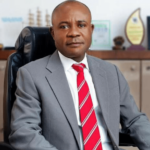Nursing leaders, both in academia and clinical services, have proffered ways to tackle the challenges of nursing education and clinical practice.
They proffered the solutions during the 17th biennial Nursing Leaders Conference organized by the Nursing and Midwifery Council of Nigeria in Abuja.
Prof. Omolola Irinoye, Vice Chancellor Achievers University, Owo, Ondo State, suggested the following solutions for nursing education:
- Increase nurse educators’ salaries and pay them what they are worth in the context of their workload.
- Make room for and provide learning opportunities for adjunct faculty.
- Use academic and practice partnerships to develop and fund adjunct faculty programs.
- Access to continuing education for nurses to update knowledge and skill levels helps maintain high standards of care.
- Urgent need for continued education and skill development in the face of rapidly changing technology for nurse educators to advance quality and address.
- How renewed Yoruba Nation agitation unsettles South-West
- Rarara’s new song: ‘I did not fire my staff’ – Mai Zogale
She said there is also need for strategic leadership summit to develop agenda for emancipation of nursing and build in self-regulation for professional development.
According to Irinoye, there is need for social engagement, extensive bridge building intra and inter-professionally for the advancement of nursing in the light of more nurses acquiring higher degrees.
She said, “Concrete monitoring and support systems need not be put in place for quality assurance in the light of rapid increase in the number of educational institutions and enrollees into the diverse nursing programmes – this is particularly important for postgraduate programmes.
“There is an urgent need to work through all hindrances and barriers to surmount all challenges to unify the members of the profession for the benefit of the profession and the society at large.
“Special Funding for Translational Research at Regional, National and Local levels are most needed to inform interventions in nursing education and across specialties of nursing.”
The Registrar of the Nursing and Midwifery Council of Nigeria, Dr Umar Faruk Abubakar, said there were challenges of capacity, quality, relevance, in ensuring that training institutions adequately prepare graduate nurses for the complexities of modern healthcare.
He said despite the increasing demands for competent nurses, many training institutions still struggle with limited resources, inability to keep pace with the council’s education reforms, optimizing medical technology, limited qualified lecturers in some nursing specialities as well as responding to amplified patient health demands.
Abubakar said the council has digitalized its activities, which has further resulted in the strengthening of production capacity with increased enrolment which rose annually from 9,000 in 2016 to 39,000 nurses as at December, 2023.
He said, “Qualified professional nurses of all cadres have risen to 29,000, registered professionals’ nurses to 23,700, professional practising licences to 55,000 and 19, 300 certificates of registration were processed and released as at December, 2023.”
He said that despite the fact that 18,000 nurses applied for verification and were issued with letters of good standing to different parts of the world, there were increased records of falsification being reported among some unpatriotic nurses.
The registrar said the council’s nursing educational reforms have successfully aligned with the national policy on education, adding that training institutions have been upgraded to the status of collegiate system with the award of ND/HND academic certificate with competencies in nursing aligned to a particular nursing speciality.
He added that the College of Nursing Sciences Gombe has produced the first set of HND nursing graduands while the Nigeria Army College of Nursing Sciences is the first college to have affiliation with the University of Lagos for the award of BNSc degree in nursing.
The Coordinating Minister of Health and Social Welfare, Prof. Muhammad Ali Pate, said nursing leaders need to ensure availability of qualified educators, update training curricula, explore innovative approaches to expand access to nursing education and promote research among nurses.
He said they also have the role of championing the development and implementation of new models of care delivery that leverage nurses’ skills and improve patient outcomes.

 Join Daily Trust WhatsApp Community For Quick Access To News and Happenings Around You.
Join Daily Trust WhatsApp Community For Quick Access To News and Happenings Around You.


